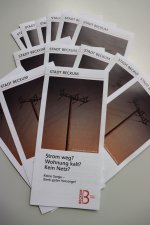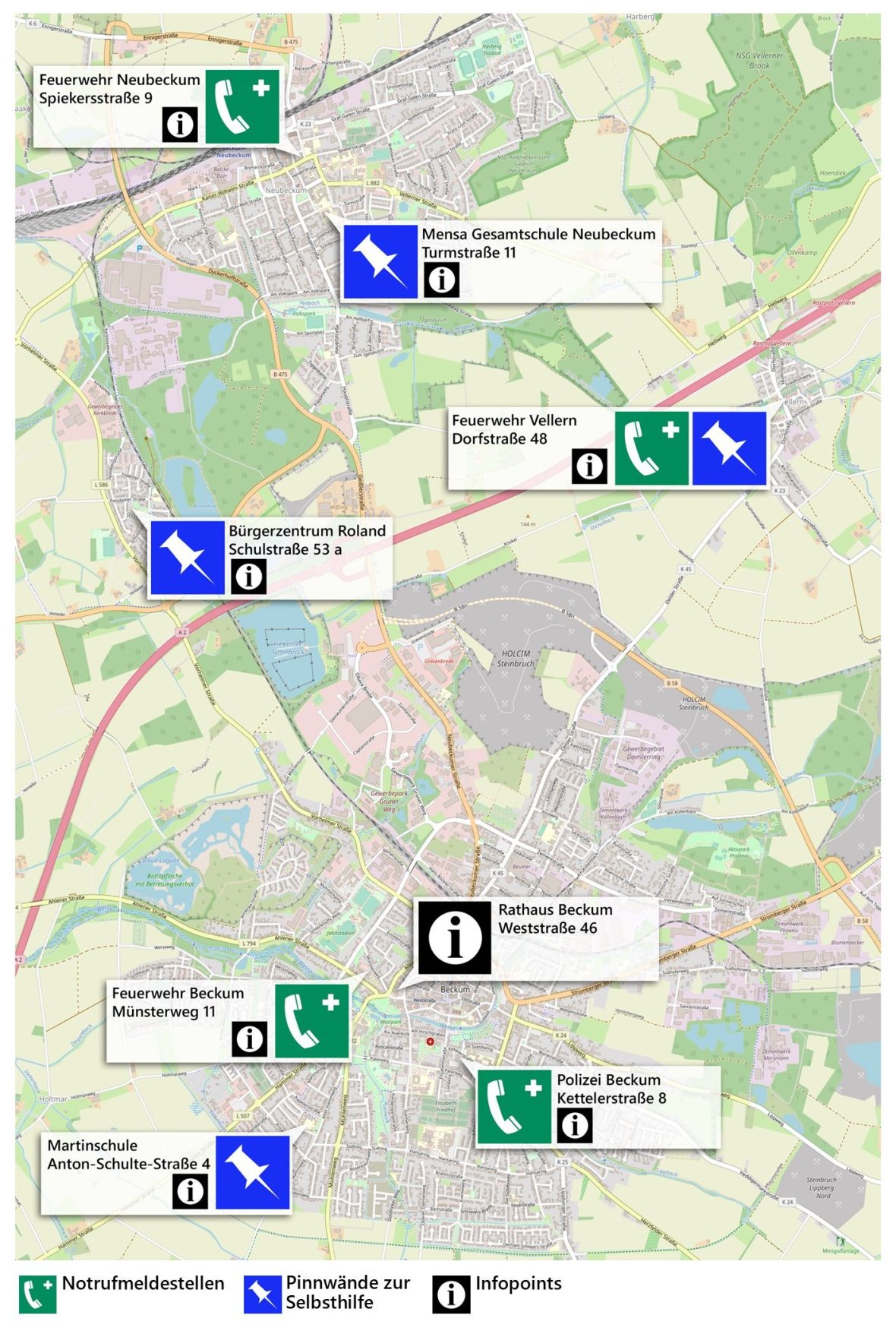Energy crisis
What to do in the event of a prolonged power cut?
Flyer offers the most important information

No electricity? Flat cold? No mains?
A flyer from the town of Beckum provides information on the necessary preparations for the scenario of a prolonged, widespread power outage.
What should you expect? What should I have in the house? Where can I make an emergency call? These and other questions are answered in the flyer. It is available in the citizens' offices and online.
Overview map
The emergency call points, info points and pinboard locations (for self-organisation) can be found on the following map:

Don't worry - thanks to good prevention
Even if the scenario is considered unlikely, the town of Beckum must be prepared in the event of a prolonged, widespread power outage. We will keep you up to date here so that you too are as well prepared as possible should the worst happen.
Numerous precautionary measures
The city of Beckum has purchased emergency power and heat generators as well as its own petrol station to ensure that the city administration remains capable of acting in the event of a blackout. The SAE energy crisis (SAE = staff for extraordinary events) meets in order to be optimally prepared for such an event. Coordination with important organisations in the city also takes place regularly. Each and every individual should also consider how to prepare themselves and their loved ones for such an emergency. All households are currently being asked to reduce their electricity and gas consumption as much as possible.
How do you prepare?
You should have enough to eat and drink in the house. With a two-week supply of food and drink, you are well prepared.
You should be aware of this:
- Keep about 14 litres of liquid per person per week in stock. Suitable drinks are mineral water, fruit juices and drinks that can be stored for longer.
- All food should have a long shelf life without refrigeration. Pay attention to the best-before date. Label food without labelling with the purchase date.
- You should store food in a cool, dry and dark place. Make sure the packaging is airtight.
- Newly purchased supplies belong at the back of the shelf. Use up the older food first.
- Frozen food also counts as emergency food. They can easily be used up in the event of a power cut. Do not refreeze food once it has defrosted.
- Cooking without electricity and natural gas? There are many alternatives on the market, such as camping cookers etc.
- When stocking up, also think about special foods - for example for diabetics, allergy sufferers or babies.
- Keep sufficient quantities of the necessary medication on hand.
- Do you have pets? Cover their needs too!
Warendorf district checklist: Basic provisions for 14 days per person
Notes on the water supply:
- In the event of prolonged water supply failures, you should collect water in all available larger containers: Bathtub, sink, buckets, pots, water canisters, etc.
- Use water sparingly. Use disposable crockery and cutlery when water is scarce for longer periods so that water does not have to be used for washing up.
- Make water last longer by using sterilising agents. These are available from camping shops.
What else you need:
- Torches and spare batteries
- Candles, matches, lighters
- Battery-operated radio or comparable crank radio
- Fully charged smartphone and a power bank
If you need help:
Of course, the fire and rescue services are still on duty for you around the clock.
Emergency call centres are set up that you can contact directly if the mobile networks also fail.
There will also be so-called support points. Here you can warm up and recharge your batteries if necessary.
There will also be a central info point. Simple pinboards will be set up at central locations for private help and requests for assistance.
